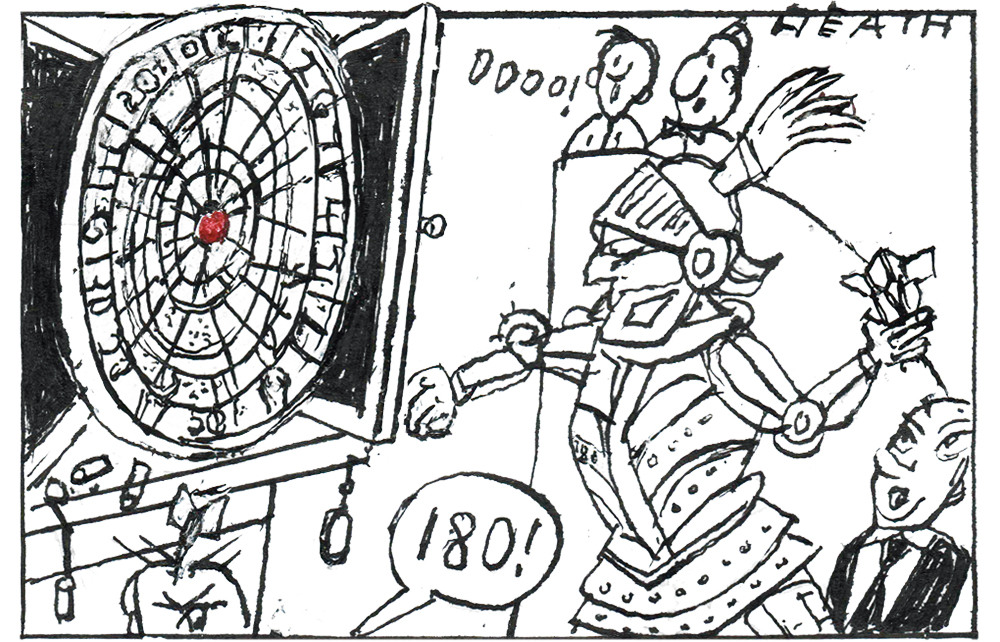I don’t watch television, which – given I’m a TV producer – is a little unusual. I suppose, just as professional chefs so often confess to living off cheese toasties, there is little joy to be had in bringing the office home. I make only one exception: the darts, which I am confident in saying is television in its purest and highest form.
What makes it so compelling is that it is, fundamentally, a character-driven sport. The players choose their own walk-on songs, outfits and nicknames. And while not every player will go the full Peter ‘Snakebite’ Wright (who coordinates wacky outfits with his multi-coloured mohawk for every game), many create larger-than-life personas.
But unlike the scripted characters churned out by TV writers’ rooms, the men and women on the Ally Pally stage are beautifully three-dimensional, their skill matched only by their raw vulnerability. Despite substantial winnings and not insubstantial fame, as a general rule players come from working-class backgrounds. Bradford-born Joe Cullen used to work as a postman, and Jonny Clayton was a plasterer for a Welsh council when he won the Premier League.
The pressure of this sport is unrelenting. Resilience is rewarded. Tournament after tournament, the next hot young talent comes up against one of the game’s old hands. Inevitably, after a set or two of astonishing scoring, the seemingly unbeatable junior will start to buckle under the bright lights and the pressure of the crowd to be beaten by a player who has built up fortitude over years.
Even seasoned pros are not immune. Last year, former number one Gerwyn Price returned to the stage 2-0 down wearing comically large ear protectors to block out the sound of the audience, who were doing their best to distract him.
Nobody epitomises the psychological struggles of darts more than the current champ, Michael Smith. He was the young prodigy seemingly destined to conquer the sport from the day he swept to victory in the world youth competition, only to find himself crumbling at every major final. Year after year he would crush all opposition, get to the final – and it would go wrong. Last year’s world championship was perhaps the most heartbreaking. After having glory snatched away for what seemed like the hundredth time, a tearful Smith told the cameras: ‘I feel like I must have done something terrible in a past life.’ This year he was finally victorious, defeating the sport’s most dominant supervillain, Michael van Gerwen.
The darts is one of the most unapologetic displays of masculinity on TV – bravado, beer bellies, tears and all. But it is also a rare example of sporting equal opportunity. Men still dominate, but women are eligible to compete in the same tournaments for the same prize money. My highlight of 2021 was watching sparkling female talent Fallon Sherrock defeat the ‘German Giant’ Gabriel Clemens with the most difficult shot in the darts, the 170, known as the ‘Big Fish’.
The pundits are also superb, combining archival knowledge of the sport with an easy chemistry. With this year’s world championship over, I’m filling my evenings by going back to the board in my local pub. Thankfully, the darts and its superlative set of characters will be back on screen at the end of the month. I recommend tuning in.






Comments